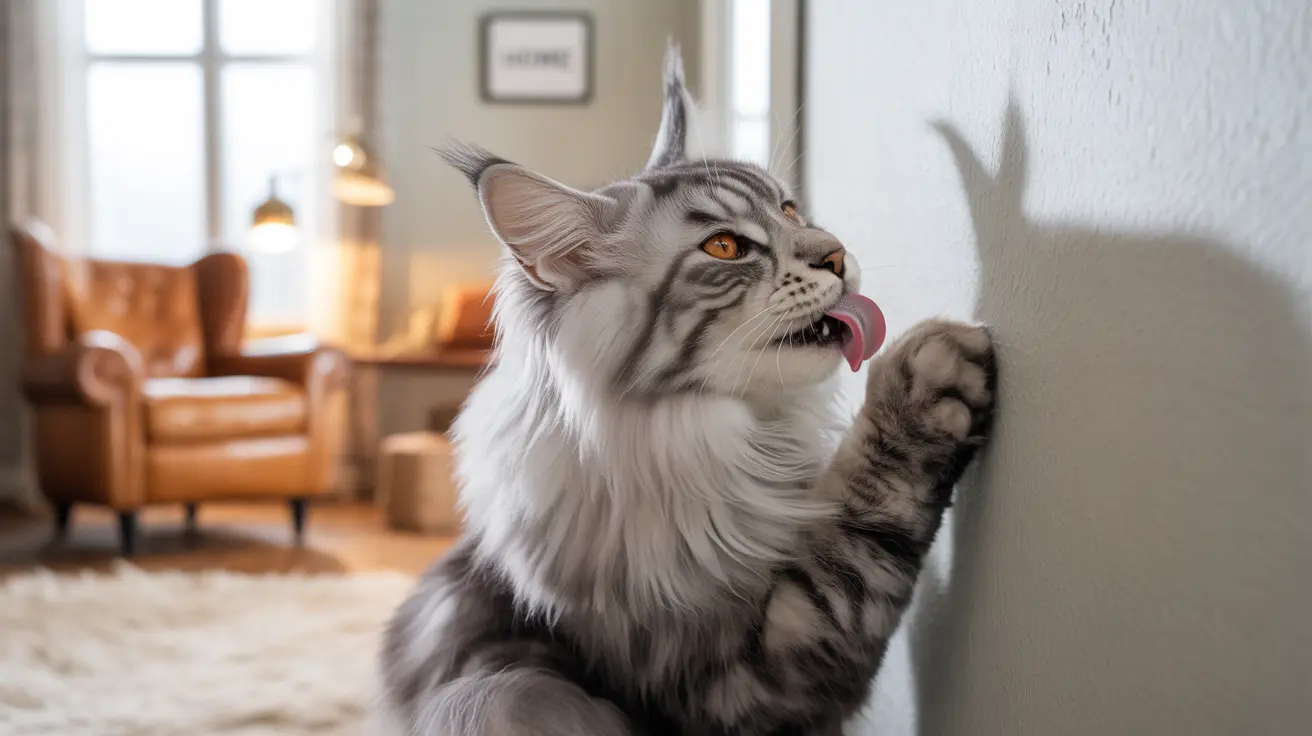Understanding Normal vs. Excessive Licking Behavior
While cats naturally spend up to 25% of their waking hours grooming themselves, sudden changes in licking patterns or intensity should raise concerns. Excessive licking can target their own body, household objects, or even their human family members. Understanding the difference between normal grooming and problematic licking is crucial for your cat's health.
Medical Causes of Sudden Excessive Licking
Physical Health Issues
Many medical conditions can trigger sudden licking behavior in cats:
- Allergies (food, environmental, or seasonal)
- Parasites (fleas, mites, or ticks)
- Skin infections (bacterial or fungal)
- Pain or discomfort from injury or illness
- Dry skin conditions
Neurological Conditions
Some cats develop neurological issues that manifest as excessive licking:
- Feline hyperesthesia syndrome
- Cognitive dysfunction in older cats
- Seizure disorders
Behavioral and Environmental Triggers
Stress and Anxiety
Cats often respond to stress by increasing their licking behavior. Common stressors include:
- Moving to a new home
- Changes in household composition
- New pets or furniture
- Changes in routine
- Owner's stress levels
Psychological Factors
Mental and emotional issues can lead to compulsive licking:
- Boredom
- Attention-seeking behavior
- Obsessive-compulsive disorder
- Displacement behavior
When to Seek Veterinary Care
Contact your veterinarian if you notice:
- Hair loss or bald patches
- Skin irritation or wounds
- Licking that interferes with normal activities
- Significant changes in behavior
- Signs of distress while licking
Treatment and Management Strategies
Medical Interventions
Your vet may recommend:
- Allergy testing and treatment
- Parasite prevention
- Anti-inflammatory medications
- Skin treatments
- Pain management
Environmental Solutions
Help reduce excessive licking through:
- Environmental enrichment
- Regular play sessions
- Stress reduction techniques
- Pheromone diffusers
- Maintaining consistent routines
Frequently Asked Questions
Why is my cat suddenly licking everything, including objects and people?
Sudden licking of various surfaces can indicate anxiety, medical issues, or a need for attention. This behavior might be triggered by stress, environmental changes, or underlying health problems that require veterinary evaluation.
What medical conditions can cause a cat to lick excessively all of a sudden?
Medical conditions that can cause sudden excessive licking include allergies, parasites, skin infections, pain, neurological disorders, and hormonal imbalances. A veterinary examination is necessary for proper diagnosis.
How can stress or environmental changes trigger sudden excessive licking in cats?
Cats are sensitive to changes in their environment. Moving homes, new pets, altered routines, or even owner stress can trigger anxiety-related licking as a coping mechanism.
When should I take my cat to the vet for sudden increased licking behavior?
Seek veterinary care if the licking is excessive, causes skin damage, interferes with normal activities, or is accompanied by other behavioral changes or physical symptoms.
What are effective ways to stop or reduce sudden compulsive licking in cats?
Effective management includes addressing underlying medical issues, reducing stress, providing environmental enrichment, maintaining consistent routines, and possibly using behavioral modification techniques or medications prescribed by your veterinarian.
Conclusion
Sudden excessive licking in cats shouldn't be ignored, as it often indicates an underlying issue requiring attention. By understanding the potential causes and seeking appropriate veterinary care, you can help your cat return to normal grooming habits and ensure their overall well-being.






